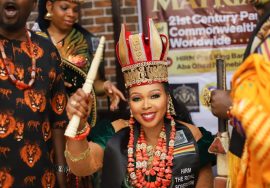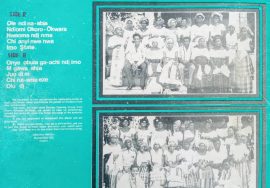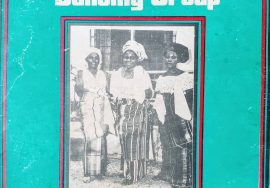
A Legendary Bloodline: Unveiling the Aba-Obazi IV Enebiene Royal Dynasty
By Olisemeka Obeche
The Aba-Obazi IV Enebiene Royal Dynasty is steeped in a rich historical lineage that intertwines biblical heritage with present-day royal claims in Africa. This essay explores the dynasty’s origins, significant milestones, and the influential figures that have shaped its identity, ultimately highlighting the Kingdom’s ongoing legacy.
Origins Rooted in Ancient History:
The foundation of the Aba-Obazi IV Enebiene Royal Dynasty is claimed to be a direct descent from King Amon of Judah, a figure prominent in biblical texts around 640 BCE, as referenced in 2 Kings 21 and 2 Chronicles 33. The dynasty traces its lineage through the tribes of Joseph and Manasseh, asserting that this ancestral line is crucial to understanding the evolution of the present-day Amon Kingdom.
Within this context, key figures emerge from biblical narratives. Among them is Amon, recognized as the founder of the Amon Kingdom in Africa, and Anak, an ancestor revered by the Ana Tribe. The influence of Anak extends to the names Aba-Obazi, Enebiene, Obazi, Aniyom, and Ana, connecting the dynasty to settlements such as Ikot Ana Town, named by the British Colonial Government in the Biase region of Calabar, Nigeria. Furthermore, the dynasty asserts a connection to the biblical Caleb from Hebron (Joshua 14), enhancing its claim of nobility and significance.
Migration and Establishment of Royalty:
The narrative takes a compelling turn during the Jewish Exodus, which led to the establishment of African Aboriginal Royalty by the 12th century. Despite this strong foundation, the dynasty faced substantial internal disputes over succession, causing instability by the 16th century. Efforts to reunite the lineage began in the 19th century, culminating in migration to the Gold Coast, specifically Akra Ga Dangbe, which encompassed the areas of Christiansborg and James Town.
In contemporary times, reconciled royal families have defined autonomous roles within the dynasty. HRM King Aba Enebiene Aniyom Obazi Ana assumed the position of Hereditary Ancestral Head, while the First Female Born Crown Princess received the Traditional Ancestral Golden Stools and Swords of Coronation Authority. This arrangement demonstrates the ongoing effort to maintain a lineage that has weathered challenges over centuries.
The Birth and Legacy of Aba-Obazi IV:
The preservation of the royal bloodline involved strategic marriages within the royal families, culminating in the birth of HRM King Barthsy Ojoi Enebiene Aba-Obazi IV. He was born Bassey Ojoi Enebiene Aniyom Obazi Ana on July 7 in Labadi, Ghana. Initially named Nana Kweku Obakweman, he later adopted the name Aba Bassey Ojoi Enebiene Aniyom Obazi Ana upon his ascent in Nigeria, with “Aba-Obazi” translating to “The Ruling King.”
From a young age, he was recognized as a reincarnated Ancestral Royalty, formally ascending the throne on his seventh day, first taking on the title of HRM Aba-Obazi II Enebiene before progressing to Aba-Obazi IV. His extensive education and professional preparation have been pivotal in his role as a leader.
Under his reign, the core lineage was officially named the Aba-Obazi IV Enebiene Royal Dynasty in 2015, signaling a ban on certain religious practices and a movement towards modernization. On December 15, 2022, he further established his authority by becoming Nii Ashangbor Obakweman II, Development Paramount King, and Chairman of the Ga Dangbe Lands Administration Traditional Arbitrators Court in Accra.
The Royal Declarations and Global Connections:
Aba-Obazi IV’s declarations extend his lineage’s influence beyond Ghana and Nigeria, positioning him as the 1st Apostolic Hereditary Ancestral Royal King of the Tunma Ga Dangbe Amon Aboriginal Kingdom Worldwide, which encompasses 36 countries across the diaspora. These proclamations not only solidify his rule but also bridge connections with historical biblical narratives, linking his dynasty to the Israeli Ancestral Kingdom/Empire of David in Jerusalem.
A Legacy of Influence:
The Aba-Obazi IV Enebiene Royal Dynasty embodies a legacy that resonates through generations. From its biblical origins to contemporary royal practices, the dynasty showcases a unique blend of tradition and modernity. Its commitment to preserving heritage while embracing change ensures that the lineage will continue to play a significant role in the cultural and historical landscape of African royalty. The dynasty’s ambitions and achievements, including the establishment of Ikot Ana Community and the installation of Diaspora Monarchs across the globe, serve as a testament to its enduring influence and relevance in today’s world.








